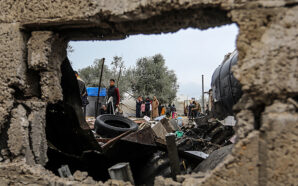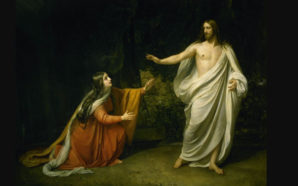As persons on pilgrimage, we engage in the quest for meaning, and in the movement towards spiritual health and maturity.
We strive, individually and together, for human wellbeing, and for the flourishing of all life on Earth. Whether or not we may identify ourselves as ‘pilgrims’, we are all members of the global family, moving onwards in a world of continuing war and violence, of dramatic and increasing climate change, and of a continuing COVID culture.
This brief reflection will consider some of the questions Jesus Himself faced in relation to His own human journey, as well as some of the questions He poses to those He invited to ‘Come, follow me’ (Lk 18:22). As ones beloved by our Creator God, we yearn and strive for life within the daily pilgrimage of the unfolding of our life’s story. And as disciples of Jesus, we remember that all is grace:
No one can come to me unless the Father who sent me, draws him. (Jn 6:44)
In the fullness of time, the Divine Pilgrim began His journey: ‘The Word became flesh and dwelt among us’ (Jn 1:14). And as we know ‘He emptied Himself… becoming like us in all things’ (Phil 2:7). He struggled, questioned, agonised. Being the beloved Son of God did not remove Him from the doubts, temptations and challenges faced by us all.
A query (perhaps something like ‘Why should I help you’?) was implied in Jesus’ response to the Canaanite woman’s plea (Mt 15:24). Similarly at Cana – before his public journey began – with the question to His mother: ‘Woman, what does this have to do with me?’ (Jn 2:4). Experiencing and reflecting integrity includes voicing the questions along the way, looking for answers, struggling with the truth: the truth of who I am, to what (and to whom) I am called. Jesus experienced these challenges.
Along the way He Himself took, we may ask what were His own deep feelings and queries behind such questions as ‘Who do they say I am?’ (Mt 16:13) Along with the scholarly biblical commentaries on such passages, may we also surmise that Jesus had hopes and fears about his reputation? And what were His feelings behind the sad, quiet question?
‘Where are the other nine?’ (Lk 17:17). He too, experienced disappointment, ingratitude, dismissal. His integrity however, did not depend on the approval or admiration of others.
Jesus’ integrity was reflected in His daily living and dying. ‘I am the Way’ (Jn 14:6), He told us. We witness in His living an everyday engagement and unfolding of the paschal mystery. Yes, there was a price to be paid for proclaiming and witnessing to the Kingdom. What sustained Him all along the way? He told us: ‘My meat is to do the will of Him who sent me’ (Jn 4:34) and furthermore, as faithful pilgrim, we hear Him say: ‘I came forth from the Father and have come into the world; I am leaving the world again and am going to the Father’ (Jn 16:28).
Such profound and total belonging did not cancel out that final deep cry from the heart: ‘Why have you abandoned me?’ (Mt 27:46). Jesus’ walk with the Spirit, and with His Abba, along with His faithfulness to the human condition and struggle remained to the end when, with the Resurrection, His transformation was accomplished.
And what of His questions to us, as we ourselves continue on our way and strive for personal integrity, and for that freedom of spirit which it brings?
‘Who do you say I am?’ He asks. So how do I name who He is for me. And His later stark question: ‘Do you love me?’ Such a direct question invites us to respond truthfully, and in so doing to recognise and name the nature of our relationship. The question may move us to face our insecurities perhaps, or our duplicity, our hypocrisy, our lack of integrity.
Another challenging question Jesus poses ‘What do you want me to do for you?’ invites us to sit with the question awhile and then to respond with humility and honesty. Similarly, with the even more specific invitation: ‘Do you want me to wash your feet?’ which may encourage us to sit quietly with our own reality – and with our relationship with the One we call ‘Lord and God’.
To own and address these – and other questions, to address them with sincerity – this is our ongoing task. It is one that requires courage, but one that can bring freedom – and ultimately, deep peace.
We hold on to those encouraging words of the Divine Pilgrim: ‘I am going away and I will come to you.’ (Jn 14:28). On our own pilgrim way, we trust in the loving presence and guidance of the Spirit (Jn 16:7). We walk on together.
Dr Robyn Reynolds OLSH spent many years living and working in remote Aboriginal communities in northern and central Australia. She now teaches at the University of Divinity in Melbourne (Yarra Theological Union) and also at ‘Heart of Life’, Centre for Spiritual & Pastoral Formation.
This article was originally published in the 2022 Season of Creation | Spring 2022 edition of the Catholic Outlook Magazine. You can pick up your copy of the magazine in parishes, schools and offices across the Diocese of Parramatta now or you can read the digital version here.








